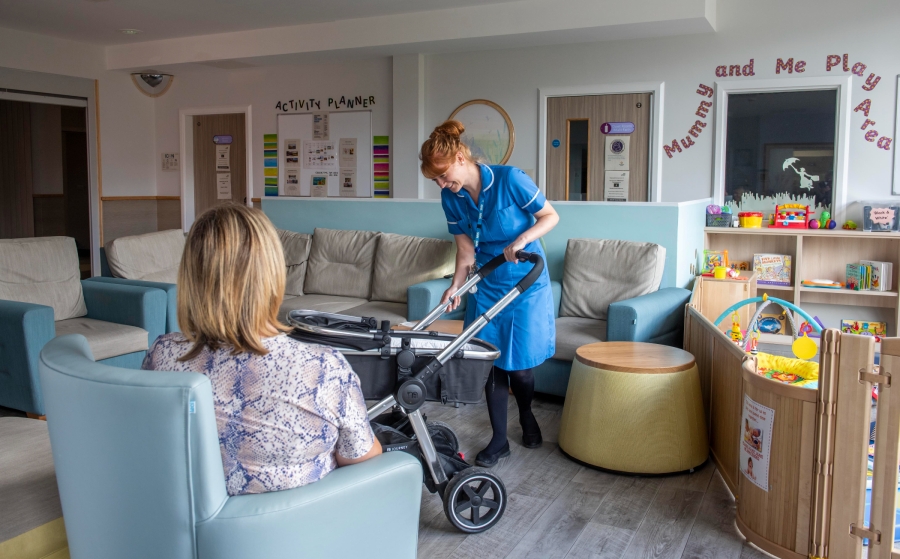As part of Maternal Mental Health week, we held a question and answer session on Instagram. Please see below for the full list of questions and answers.
Submitted Questions
Why can pregnancy make a woman who’s never had any issues get mentally ill?
Pregnancy is a special time and the mind can change as well as the body, the adaptation to becoming a parent can be a time of stress and difficulty too and mental ill health can affect anyone during this time. Midwives are trained to ask specific questions about wellbeing during pregnancy for this reason so people who are affected can be identified.
What would an appointment be like, can I bring my baby?
A first appointment with a perinatal team would be mainly be about be getting to know you, information gathering with mum and their partner or closest person to understand Mum and babies experiences and needs from the outset. Yes bringing baby to any appointment with us is always ok, in fact its encouraged!
Who is out there to support new mums?
A wide variety of help is out there with knowledge around mental health. Midwives, GPs, Health Visitors, NHS Talking Therapy services, Specialist Perinatal mental health services and volunteer and charity providers such as Homestart. If you have a local children’s centre, they can have a wealth of support to tap into.
Can I get advice before getting pregnant?
If you have had a mental health diagnosis and are taking medication to manage this. You can get advice about planning your pregnancy as it really helps to be as healthy as possible. You can ask your GP for a referral for “Pre conception advice” with our Specialist Perinatal Service.
What should I do if I’m pregnant and have diagnosed mental health problems?
Speak to your midwife and let them know, there are many ways they can support you at this time, and if you would like some additional support they may refer you to Specialist Perinatal services.
Should I stop my medication if I get pregnant?
Not necessarily. Everyone is different based on a risk-benefit conversation, and many medications may be relatively safe to continue to take in your individual circumstances. Only change your medication under medical advice, you can discuss this with your GP, who may refer to our Specialist Perinatal team.
Why do I feel anxious and scared all the time?
Feeling anxious and scared all of the time, maybe a sign of a mental health disorder or maybe that something stressful in your life or circumstances needs some support. Speak to someone you trust, and maybe your Health Visitor or midwife would be able to refer to either NHS Talking Therapies or an NHS Specialist Perinatal Service.
My wife is so nervous about leaving the house, is that normal?
Leaving the house can be very anxiety provoking, especially in the early days with a new baby, there’s so many more things to think about. Gentle encouragement and support from friends and family may help. If this persists and impacts on day to day functioning, it may be worth booking a GP appointment to explore what is going on in a little more detail. You can watch some videos to help.
I’m really struggling with anxiety about my baby feeding, what can I do to help myself?
Lots of mums struggle to find their way with feeding, and it can feel stressful. You can find out more about infant feeding.
I don’t want to go to the hospital, can I get treatment at home?
Yes, most of the support for people in the perinatal period with mental health problems will be provided at home. We have three community perinatal teams which mainly offer home visits or clinic appointments.
Will someone take my baby away if I ask for help?
No, and this is a common worry. We work closely with families to maintain relationships and safety during this time. We work hard to keep mums and babies together where we can.
What sort of mental health problems can happen after giving birth?
These can range from mild anxiety and low mood through to very severe illness such as severe depression, postpartum psychosis. The more severe illnesses are less common, but need urgent intervention it's important to know what to watch out for.

